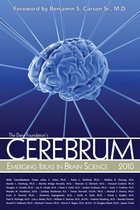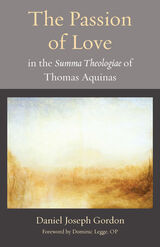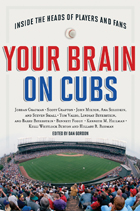3 books by Gordon, Dan

Cerebrum 2010
Emerging Ideas in Brain Science
Foreword by Benjamin S. Carson, M.D.
Dana Press, 2010
Cerebrum 2010 offers a feast for readers keen to know what the world’s leading thinkers see as the newest ideas and implications arising from discoveries about the brain. Drawn from Cerebrum’s highly regarded Web edition, this fourth annual collection brings together the foremost experts in brain science. Jay Giedd, Michael Posner, Mariale Hardiman, David Kupfer and Paul McHugh present their research—and their take—on such cutting-edge topics as the development of the teen brain, how arts education affects intelligence, the limitations of brain imaging, and how to bring more certainty and flexibility to diagnosis in the next edition of the psychiatric bible, the Diagnostic and Statistical Manual of Mental Disorders (DSM-V).
Benjamin S. Carson Sr., director of pediatric neurosurgery at Johns Hopkins Children’s Center and a professor of neurological surgery, oncology, plastic surgery and pediatrics at the Johns Hopkins Medical Institutions, provides an insightful perspective on the impact of neuroscience on his career, the well-being of patients, and the understanding of how the mind works. Cerebrum 2010 presents candid, intriguing debates that capture the harmony as well as the discord in the complex and evolving relationship between neuroscience and society.
[more]

The Passion of Love in the Summa Theologiae of Thomas Aquinas
Daniel Joseph Gordon
Catholic University of America Press, 2023
This book is an introduction to three questions on love according to St. Thomas Aquinas (Summa Theologiae I–II, qq. 26–28). These three questions reflect on the nature of love (q. 26), the causes of love (q. 27), and the effects of love (q. 28). It is thus an introduction to the entire phenomenon of love, both as a bodily passion and an act of the will. The purpose is to present the Thomistic and broadly scholastic account of human and divine
love from a philosophical and theological perspective. It aims to be a theological and philosophical study of the topic, useful both for a graduate/professional audience, as part of an undergraduate or graduate course, and perhaps for the educated reader. The thesis of the book is that, contrary to contemporary conceptions, not all loves are created equal. Some loves perfect us and some loves corrupt us. The worth of a love depends on its object and end. St. Thomas thus presents an objective and teleological account of human and divine love that is of philosophical and theological interest. The method is broadly exegetical, presenting a careful reading of the text and supplying the philosophical and theological background which the text of Aquinas assumes. The scope of the work is limited to three questions (ST I–II, qq. 26–28). References to interpretative disputes of Aquinas and references to further resources in the secondary literature will be mostly limited to the footnotes, making the body of the text accessible to more readers.
[more]

Your Brain on Cubs
Inside the Heads of Players and Fans
Edited by Dan Gordon
Dana Press, 2008
White Sox fans were overcome with euphoria when their beloved team won after eighty-eight years of failure, and the long-suffering Red Sox Nation finally received their vindication in 2004. Now the Cubs are the only “cursed” team left: The team has repeatedly made the playoffs without ever winning the World Series for the last ninety-nine years, and yet thousands who bleed Cubbie blue pack Wrigley Field for every game. The reasons why ardent sports fans in Chicago and around the world buy expensive game tickets and memorabilia, fill stadiums, and live and die by their team’s fortunes is the subject of Your Brain on Cubs, an engaging study that delves into why sports engender such passionate emotions in us all.
A group of today’s leading science writers and neuroscientists explore here the ways that our brain functions when we participate in sports as fans, athletes, and coaches, taking baseball as the quintessential sport for all three perspectives. The contributors tackle such questions as: How does a player hit a ninety-mile-per-hour fastball when he barely has time to visually register it? Why do fans remain devotedly loyal year after year? And what allows them to believe in superstitions, such as a curse? Other topics investigated in the book include how a ballplayer’s brain changes as he gains experience and expertise, why there are a higher percentage of left-handers in the major leagues compared to the general population, and the ethical implications of neurological performance enhancement.
An expertly written and thought-provoking read, Your Brain on Cubs challenges us to reevaluate the nature of the sports fan and the athlete, revealing the scientific complexity underlying the seemingly black-and-white world of wins and losses.
[more]
READERS
Browse our collection.
PUBLISHERS
See BiblioVault's publisher services.
STUDENT SERVICES
Files for college accessibility offices.
UChicago Accessibility Resources
home | accessibility | search | about | contact us
BiblioVault ® 2001 - 2024
The University of Chicago Press









